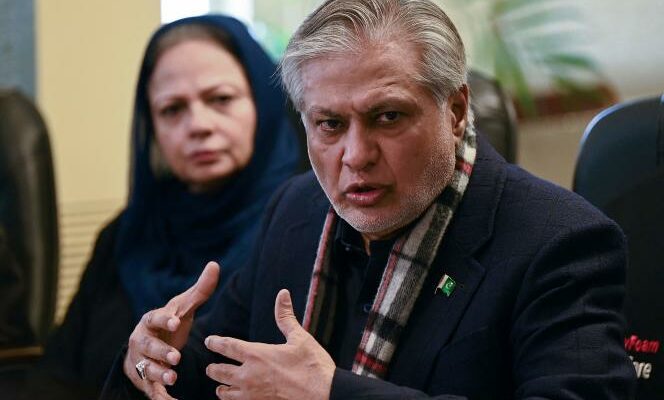Pakistan, close to default, failed to reach a comprehensive agreement with the International Monetary Fund (IMF) to obtain fresh money, after ten days of intense negotiations in Islamabad. The monetary institution notes however “significant progress (…) policy measures to correct internal and external imbalances”. The country of 220 million inhabitants is on the edge of the abyss: there are only 2.9 billion dollars (2.7 billion euros) of foreign exchange reserves left in the state coffers, barely enough to cover a month of imports. The discussions were aimed at releasing the last $1.1 billion tranche of a staggered loan, granted in 2019, for a total amount of $6.5 billion.
The IMF had suspended the disbursement of the loan in 2022, considering that the Pakistani government had not implemented the necessary reforms to facilitate the inflow of money. The monetary institution demanded in particular the end of the subsidies on fuel and electricity put in place by his predecessor Imran Khan in February 2022, before his ouster, and which strain public finances. The decision is all the more difficult to make as the Pakistanis are already suffering from a record price increase. In February, retail price inflation reached 27.6%, that of food products almost 40%.
The agreement with the IMF is essential to unlock loans from friendly countries – Saudi Arabia, the United Arab Emirates and China. The IMF delegation led by Nathan Porter was to return to Washington on Friday 11 February. The Pakistani authorities remain optimistic and ensure that an agreement has been reached on the essentials. The IMF is asking Pakistan for drastic measures to release the loan, as well as guarantees. Many commitments have not been kept in the past.
Low cost Russian oil
The major sticking points relate to the increase in the cost of gasoline, electricity and gas to reduce the debt of the energy sector, the reduction of the budget deficit, the end of export tax exemptions and a improvement in tax collection, which is very weak due to the size of the informal economy. Pakistani Prime Minister Shehbaz Sharif argues that the country has not even recovered from the historic floods that hit it in the summer of 2022 and calls for a phased program. He wants to save low-income households.
A few months before the general elections scheduled for October, and while he is under pressure from his predecessor, Imran Khan, who has become very popular, the Prime Minister still hopes to avoid too painful measures. In particular, he wants to obtain low-cost crude oil deliveries from Moscow from March.
You have 44.31% of this article left to read. The following is for subscribers only.
